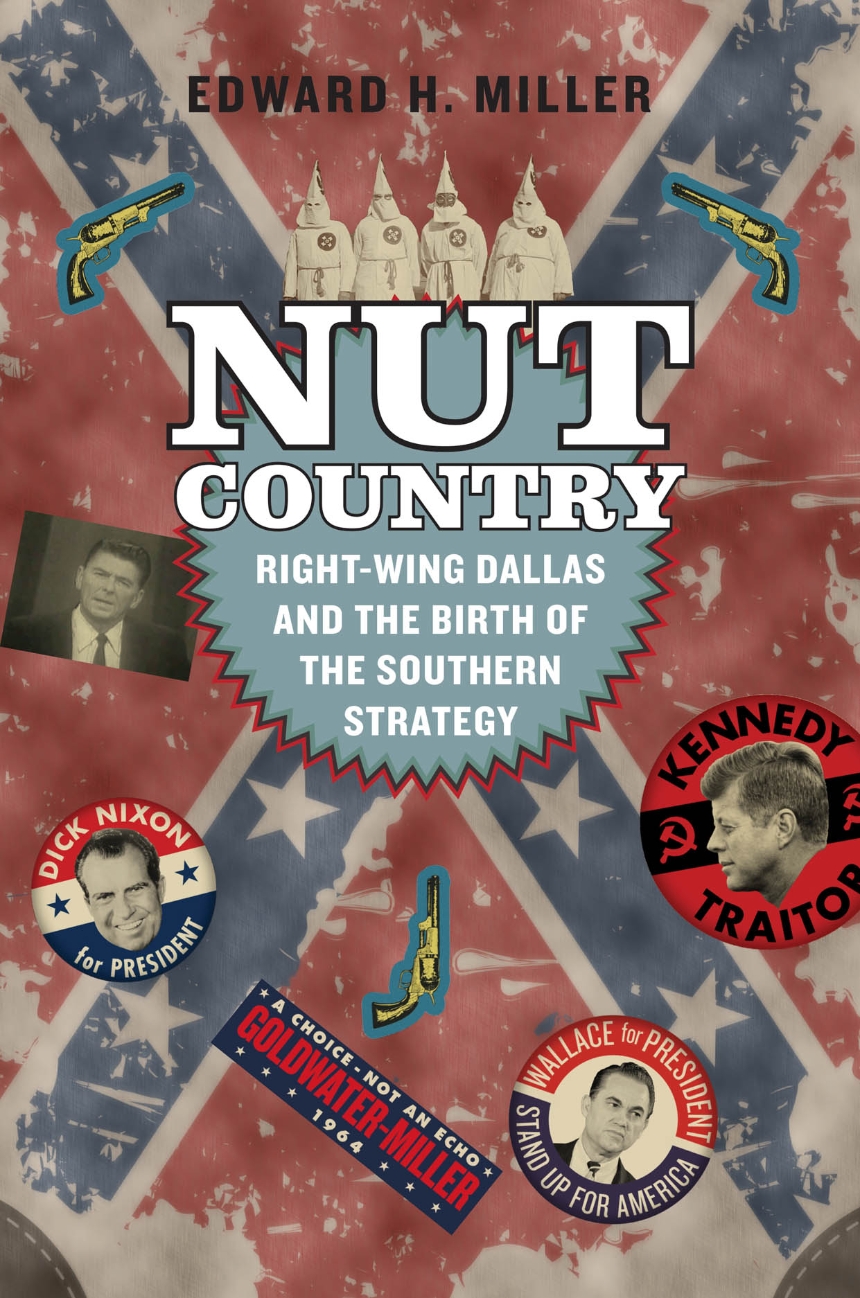Nut Country
Right-Wing Dallas and the Birth of the Southern Strategy
9780226421216
9780226205380
9780226205410
Nut Country
Right-Wing Dallas and the Birth of the Southern Strategy
On the morning of November 22, 1963, President Kennedy told Jackie as they started for Dallas, “We’re heading into nut country today.” That day’s events ultimately obscured and revealed just how right he was: Oswald was a lone gunman, but the city that surrounded him was full of people who hated Kennedy and everything he stood for, led by a powerful group of ultraconservatives who would eventually remake the Republican party in their own image.
In Nut Country, Edward H. Miller tells the story of that transformation, showing how a group of influential far-right businessmen, religious leaders, and political operatives developed a potent mix of hardline anticommunism, biblical literalism, and racism to generate a violent populism—and widespread power. Though those figures were seen as extreme in Texas and elsewhere, mainstream Republicans nonetheless found themselves forced to make alliances, or tack to the right on topics like segregation. As racial resentment came to fuel the national Republican party’s divisive but effective “Southern Strategy,” the power of the extreme conservatives rooted in Texas only grew.
Drawing direct lines from Dallas to DC, Miller's captivating history offers a fresh understanding of the rise of the new Republican Party and the apocalyptic language, conspiracy theories, and ideological rigidity that remain potent features of our politics today.
Read an excerpt from the Introduction.
256 pages | 24 halftones | 6 x 9 | © 2015
History: American History
Political Science: Political Behavior and Public Opinion
Sociology: Social Change, Social Movements, Political Sociology
